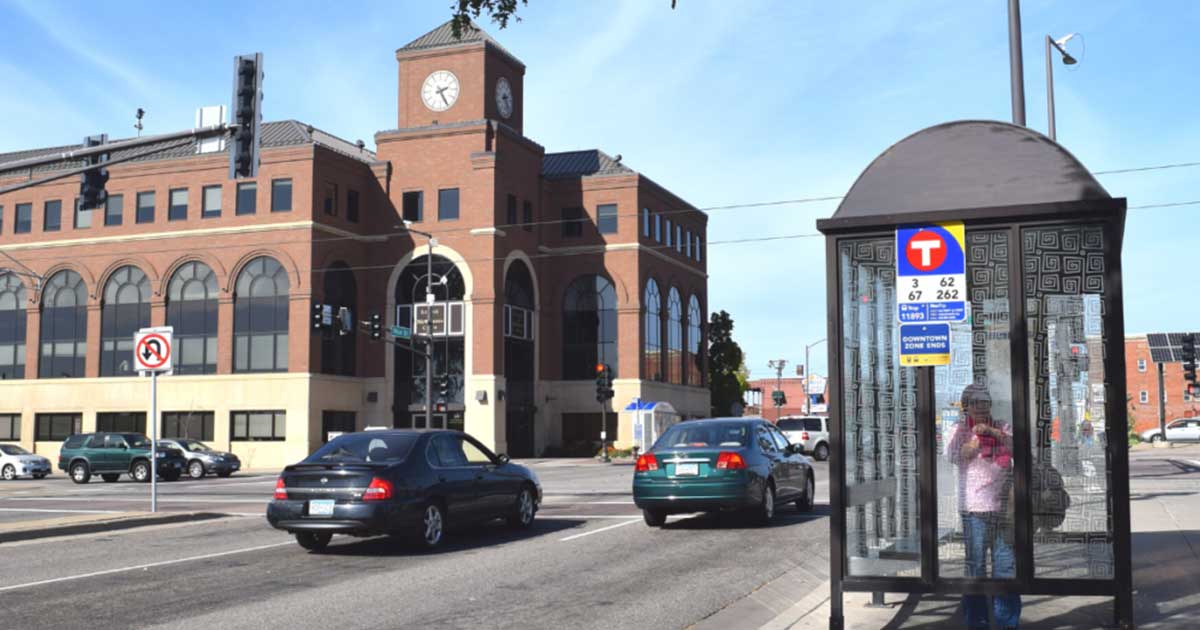Our Investments Must Match Our Values: Comments on the TIP
In 2013, journalist David Roberts asked “is humanity smarter than a protozoan?” Roberts’ article centered on the finite biological resources on planet Earth. It asked whether humans will have the ingenuity and discipline to temper our consumption to insure long-term prosperity, or whether we will pursue growth and consumption until we overwhelm our environment and enter an era of catastrophe, the way protozoa in a petri dish propagate ceaselessly and consume all resources until their population collapses.
The pursuit of seemingly endless growth has been a through-line in the United States’ history of roads and highways, even more in Minnesota that in other states: we have the 5th highest total highway miles in the country (disproportionate to both our geographic and population sizes) and we lead the nation in our attraction to gas guzzling SUVs, crossovers, and trucks. Transportation is Minnesota’s leading source of climate pollution and a significant contributor to the state’s economic and racial divides.
Pursuit of ceaseless and harmful growth continues in the Metropolitan Council’s 2021-2024 Transportation Improvement Program for the Twin Cities Metropolitan Area (“TIP”).
The TIP is currently open for public comment; comments will be accepted until August 10, 2020. The plan is divided into two primary parts. The body of the report, pages 1-42, describes various transportation funding sources, makes mention of some high-level transit and road projects, and describes the legal and policy framework for different funding streams and for the report itself. Appendix A, from page 42-101, lists numerous specific projects in detail.
It would be possible to submit comments on individual projects in the TIP: we suggest a transit line extended here, a lane added there. But such comments would miss the forest for the trees. The TIP—despite excellent plans to invest in transit, biking, and walking infrastructure throughout the region—is still a document that commits hundreds of millions of dollars to highway expansion, a plan that risks our future.
Move Minnesota will submit three foundational comments during the TIP’s comment period. We encourage our supporters to join us.
- Acknowledge the impact of TIP investments in the plan itself. The TIP is 116 pages long. Incredibly, in all that analysis and in all those project listings, the word “climate” does not appear one time. Nor are there any mentions of race. (The plan does mention “equity” and “sustainability” through references to policies in other documents.) Climate change and healing racial inequities are pivotal challenges in 2020 and will remain challenges in the years and decades to come. We request that the TIP include an analysis of how each transportation project and funding stream will impact our climate future and our current inequities and injustices. Transportation infrastructure and priorities are decimating our climate, are expanding and perpetuating economic inequality, and have been used to divide and destroy Black and brown communities. We need to know this won’t happen again.
- Do not expand roadways. Don’t just take money because it is there. Expanding roadways—whether through lane expansions, adding HOV lanes rather than restricting existing lanes to HOV lanes, or creating new flyovers or interchanges—induces demand for driving. This means that the more we build, the more people will drive. Yet we know we need to reduce the amount of miles people drive to meet even the most timid climate targets; we know we must close the gap between the ease of car travel and the ease of biking, walking, and transit if we are to deliver economic and racial justice to our communities. Move Minnesota understands that federal money is available for highway expansion and that accepting that money feels like the right thing to do—it’s what our region has always done, and it’s money coming to our communities. But the fact that someone will pay for something does not make it right. We ask that the Metropolitan Council refuse money for roadway expansion and redirect all local road expansion monies to biking, walking, and transit investments.
- Act now. We recognize that the TIP relies on policy guidance in Thrive 2040, the Transportation Policy Plan (TPP), and other previously-written documents. Yet the world is changing incredibly fast, and these documents fall out of date faster than we could have imagined. When the TPP passed, the federal government was tightening CAFE standards for cars and trucks and was committed to carbon reduction. No longer. We need the Metropolitan Council to respond to current realities, not plans adopted six years ago. We request that the Metropolitan Council act in our collective best interest in the TIP, not just follow the letter of past plans.
Submit Your Comments
We hope you will join us in making these comments on the Transportation Improvement Program: you can copy and paste or write your own and send them to public.info@metc.state.mn.us.
Our communities’ futures rely on smart and responsive governing, and on having the courage to admit where our governments and society have made mistakes in the past. We look forward to working with the Metropolitan Council in the months and years ahead to develop a transportation infrastructure and future that protects us all and delivers justice for our communities.

